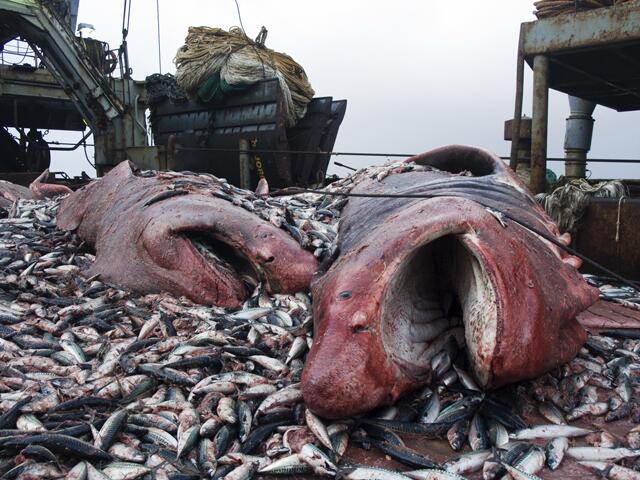Fishermen:
There is a significant decline in the amount of edible fish left in the ocean, so much so that by the year 2050, it is predicted that there will no longer be an industry in catching edible saltwater fish. This impact of overfishing will cause stakeholders of the fishing industry to have their employment become obsolete due to lack of natural resources. Demands will cause them to pursue more damaging ways to capture fish(ex. bottom trawling) , which could only result in further depleting the world's fish population. The fishermen themselves are overfishing and causing the future of their industry to be jeopardized.
Consumers:
Due to lack of edible fish in the ocean (for instance bluefin tuna), people will pay more and demonstrate higher demands for certain species. Many consumers will have demands for a certain fish based on the sole purpose of it being less common. Consumers will pay higher quantities for overfished fished and will have will face an inflation in the price of all significantly fished species (ex. Salmon, Cod,) as a result of overfishing + supply and demand.
Governments:
Governments highly invested in fishing exports will need to adapt their regulations and enforcements in order to protect their country's depleting fish supply. They will need to regulate the amount of fish caught and the methods in which fisheries are doing so in order to maintain the possibility sustaining the fish population. The government will also need to adapt to changes in economy due to changes in oceanic resources, especially if the country's economy relies heavily on the fish exports such as China and Vietnam.
The Environment:
The environment is effected by fishing as many industries are irresponsible. Extreme measures in fishing can and have destroyed entire ecosystems. Lack of biodiversity as a result of overfishing will make it difficult for species to continue to multiply, which could lead to extinction. Decrease or increases of a species in any environment will dramatically affect the ecosystem. The ecosystem can also be destroyed by practices such as bottom trawling which wreaks havoc on the ocean floor and accidentally abandoning fishing nets that become "ghost nets". These nets will remain in the ocean and can unnecessarily kill thousands of marine life. Furthermore, commercial fishing pollutes the environment with the oil and chemicals of fishing boats.
b) Fishing in Pakistan
-The coastal population of Pakistan is heavily dependant on the fishing industry. It also affects the greater economy of Pakistan as approximately 611,246 tonnes of fishery products are produced and 151,830 tonnes are exported. To give an idea of the economic impact of Pakistan's fishing industry, 117 million fishery products were exported from the month of July to May from 2002 to 2003.
-Significant decrease in Pakistan's fish population has occurred due to the excessive use of tidal trap nets: a form of fishing that wipes out juvenile fish, captures bycatch, and destroys ecosystems. Deep sea trawling is also utilized quite often illegally.
 These fishing methods have lead to a less prosperous fishing industry and a greater chance of species extinction.
These fishing methods have lead to a less prosperous fishing industry and a greater chance of species extinction.-This overfishing has made it extremely difficult for fishermen to earn a living in the fishing industry. Regulated, ethical fishermen cannot compete with the commercial bounty of illegal fishing corporations.
-Global warming has lead to temperatures that have a negative correlation with the population of Barramundi but a positive correlation with the catch of mullet.
-Overfishing will not drastically corrupt the economy because the fishing industry only contributes to 1% of the GDP however their exports have been roughly 367 million in the past and therefore, It will be the civilians in the fishing industry and civilians that require a local food source that will be affected as their natural resource is no longer sustainable.
No comments:
Post a Comment